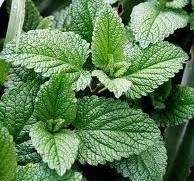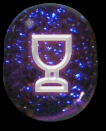Mint
Pliny said: "As for the garden Mint, the very smell of it alone recovers and refreshes the spirits, as the taste stirs up the appetite for meat, which is the reason that it is so general in our acid sauces, wherein we are accustomed to dip our meat."
Added Sep 19, 2010
| 5,589 Reads
Several kinds of the Mints have been used medicinally from the earliest times, such as Balm, Basil, Ground Ivy, Horehound, Marjoram, Pennyroyal, Peppermint, Rosemary, Sage, Savory, Spearmint, and Thyme, some being esteemed rather as pot herbs, than as exercising positive medicinal effects. The most useful as Herbal Simples which have yet to be considered are Pennyroyal, Peppermint, and Spearmint. The Cat Mint (Nepeta cataria) and All the Mints are severally provided with leaves of a familiar fragrant character, it having been observed that this aromatic vegetation is a feature of deserts, and of other hot, dry places, allover the world. Tyndall showed the power exercised by a spray of perfume when diffused through a room to cool it, or in other words to exclude the passage of the heat rays; and it has been suggested that the presence of essential oils in the leaves of these plants serves to protect them against the intense dry heat of a desert sun all effectively as if they were partly under shelter. Nevertheless Mints, with the exception of "Arvensis," are the inhabitants of wet and marshy wastes. They have acquired their common name Mentha from Minthes (according to Ovid) who was changed into a plant of this sort by Proserpina, the wife of Pluto, in a fit of jealousy. Their flowering tops are all found to contain a certain portion of camphor. Pliny said: "As for the garden Mint, the very smell of it alone recovers and refreshes the spirits, as the taste stirs up the appetite for meat, which is the reason that it is so general in our acid sauces, wherein we are accustomed to dip our meat." The Mints for paying tithes, with respect to which the Pharisees were condemned for their extravagance by our Saviour, included the Horse Mint (Sylvestris), the round-leaved Mint, the hairy Mint (Aquatica), the Corn Mint (Arvensis), the Bergamot Mint, and some others, besides the "Mint, Rue, and Anise," specially mentioned. "Woe unto you Pharisees; for ye tithe Mint and Rue, and all manner of herbs. Ye pay tithe of Mint, and Anise, and Cummin." Chemists supply the medicine in the full belief of this eminent opinion just quoted: at the same time they know it is not wanted for "catarrh of the chest," as alleged. The purchaser keeps her secret to herself, and does not communicate her experience to anyone. Dr. Taylor evidently supposed Peppermint water and Camphor water to be almost inert, especially as exercising any toxical effect on the womb. The Calamint, or Basil Thyme, grows frequently in [344] our waysides and hedges, a labiate plant, with downy stems and leaves, whilst bearing light purple flowers. The whole herb has a sweet, aromatic odour, and makes a pleasant cordial tea. It is named from the Greek kalos, "excellent," because thought useful against serpents; "There is made hereof," said Galen, "An antidote marvellous good for young women that want their courses." The stem of this pretty slender herb is seldom more than five or six inches high, and its blossoms are so inconspicuous as to be often overlooked. The flowers droop gracefully before expansion. In country places it is often called Mill Mountain, and its infusion is an old remedy for rheumatism. If bruised, and applied externally, it reddens the skin, and will sometimes even blister it. In this way it acts well when judiciously used for lumbago, and rheumatic pains. The Calamint contains a camphoraceous, volatile, stimulating oil, in common with the other mints; this is distilled by water, but its virtues are better extracted by rectified spirit. The lesser Calamint is a variety of the herb possessing almost superior virtues, with a stronger odour resembling that of Pennyroyal. "Apple Mint" is the "Mentha rotundifolia." "Many robust men and women among our peasantry," says Dr. George Moore, "from notions of their own, use infusions of Balm, Sage, or even a little Rue, or wild Thyme, as a common drink, with satisfaction to their stomachs, and advantage to their health, instead of infusing the Chinese herb." The Calamint is a favourite herb with such persons. About the Cat mint there is an old saying, "If you set it the cats will eat it: if you sow it the cats won't know it." This, the Nepeta cataria, or herbe aux chats, is as much beloved by cats as Valerian, and the common Marum, for which herbs they have a frenzied passion. They roll themselves over the plants, which they lick, tear with their teeth, and bathe with their urine. But the Cat mint is the detestation of rats, insomuch that with its leaves a small barricade may be constructed which the vermin will never pass however hungry they may be. It is sometimes called "Nep," as contracted from Nepeta. Hoffman said, "The root of the Cat mint, if chewed, will make the most gentle person fierce and quarrelsome"; and there is a legend of a certain hangman who could never find courage to exercise his gruesome task until he had masticated some of this aromatic root.
Added Sep 19, 2010
| 5,589 Reads
Share The Magic ...
The GoE MONEY!!! Course - A Course In Real MONEY MAGIC!
|





















